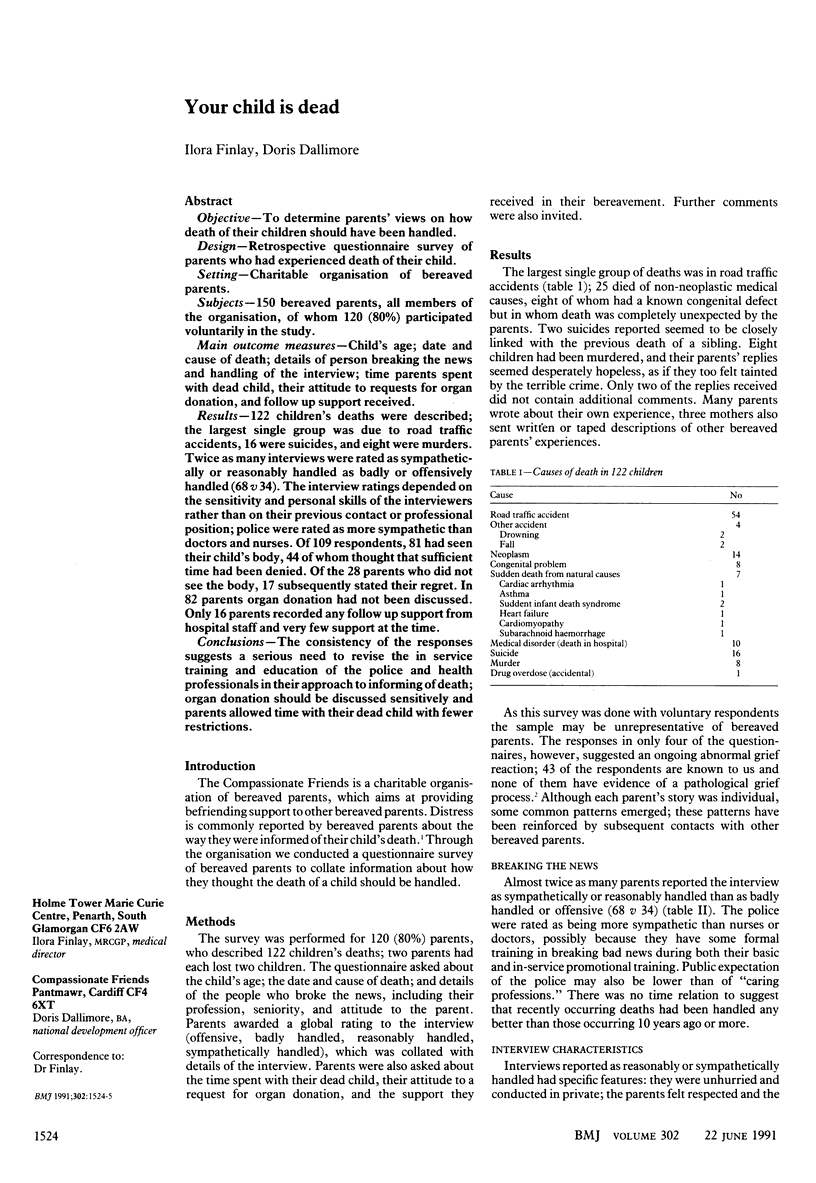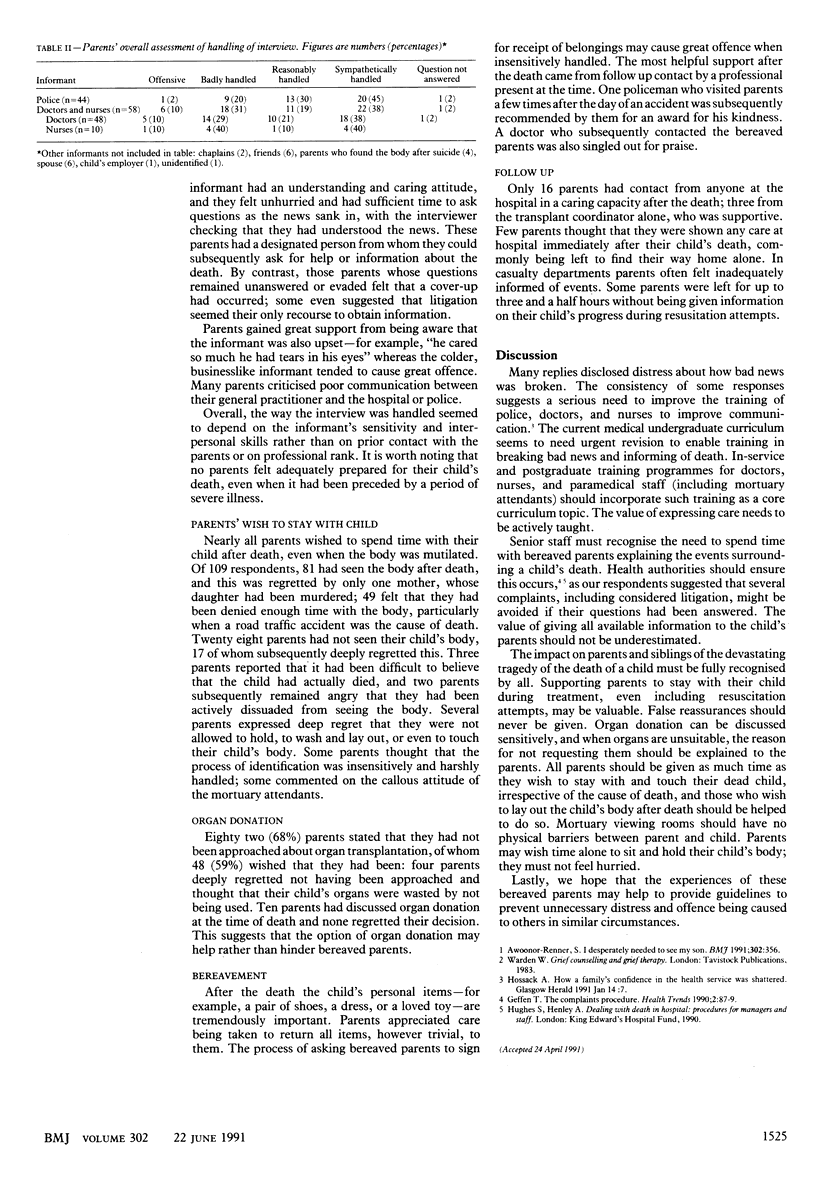Abstract
OBJECTIVE--To determine parent's views on how death of their children should have been handled. DESIGN--Retrospective questionnaire survey of parents who had experienced death of their child. SETTING--Charitable organisation of bereaved parents. SUBJECTS--150 bereaved parents, all members of the organisation, of whom 120 (80%) participated voluntarily in the study. MAIN OUTCOME MEASURES--Child's age; date and cause of death; details of person breaking the news and handling of the interview; time parents spent with dead child, their attitude to requests for organ donation, and follow up support received. RESULTS--122 children's deaths were described; the largest single group was due to road traffic accidents, 16 were suicides, and eight were murders. Twice as many interviews were rated as sympathetically or reasonably handled as badly or offensively handled (68 v 34). The interview ratings depended on the sensitivity and personal skills of the interviewers rather than on their previous contact or professional position; police were rated as more sympathetic than doctors and nurses. Of 109 respondents, 81 had seen their child's body, 44 of whom thought that sufficient time had been denied. Of the 28 parents who did not see the body, 17 subsequently stated their regret. In 82 parents organ donation had not been discussed. Only 16 parents recorded any follow up support from hospital staff and very few support at the time. CONCLUSIONS--The consistency of the responses suggests a serious need to revise the in service training and education of the police and health professionals in their approach to informing of death; organ donation should be discussed sensitively and parents allowed time with their dead child with fewer restrictions.
Full text
PDF

Selected References
These references are in PubMed. This may not be the complete list of references from this article.
- Geffen T. The complaints procedure. Health Trends. 1990;22(2):87–89. [PubMed] [Google Scholar]


